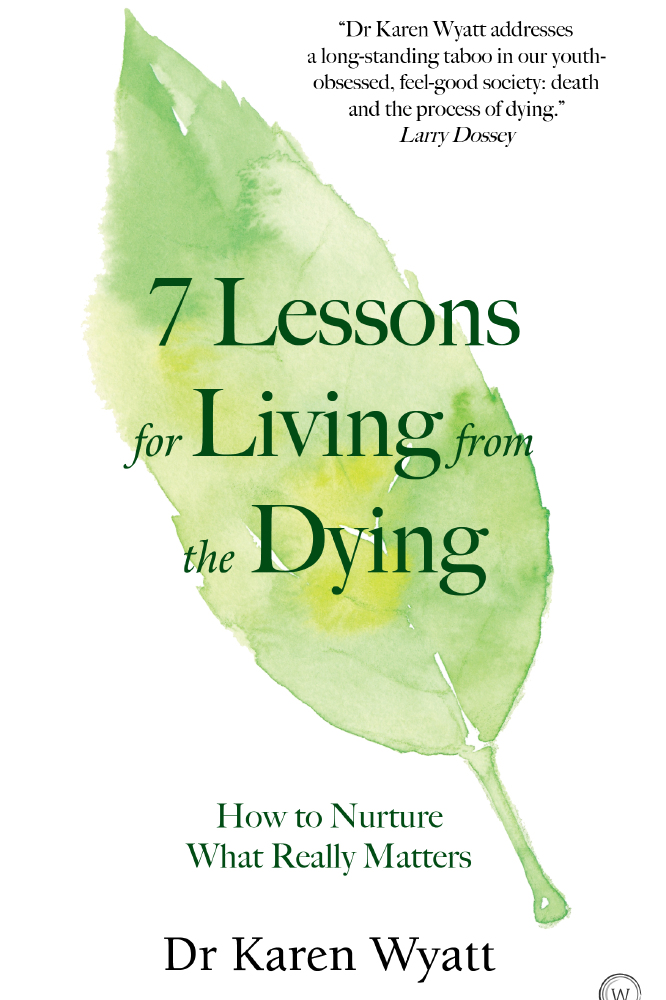By Karen Wyatt MD for Female First

Seven Lessons for the Living from the Dying
In my work as a hospice physician I spent countless hours at the bedsides of dying patients and had the opportunity to listen to their stories and concerns as they reached the end of life. Nearly every patient talked about their struggles with forgiveness, which I saw as such an important task that it was featured as one of the chapters in my book, 7 Lessons for Living from the Dying.
My dying patients expressed a need for peace, in heart as well as mind, and that’s why they were motivated to forgive. When life is coming to an end there is no energy to spare for holding on to unhappy events that took place long ago. Dying patients want more than anything to release the weight of the past and free themselves for their next journey.
However forgiveness shouldn’t wait until our final breaths are taken because no one knows when that moment will arrive. In fact, if we manage earlier in life to forgive those who have harmed us we can enjoy now the benefits that come from letting go of negative memories and making room for more positive and joyful feelings. Science has validated this idea by showing that there are physical and emotional gains from the practice of forgiveness.
The Benefits of Forgiveness
Studies reported by the Fetzer Institute and the Greater Good Science Center have shown that practicing forgiveness can lead to lower blood pressure, increased immune function, improved sleep, and increased physical energy. Forgiveness also has emotional benefits such as decreased stress, improved self-esteem, less anxiety and depression, and improved relationships.
But beyond the physical and emotional benefits of forgiveness, there are also spiritual reasons why we should forgive others. When we hold onto negativity and resentment, we keep our own precious life energy tied up in unhappy memories of the past, which constantly inflict us with pain and misery. In order to wake up to higher consciousness and deeper meaning in life, we simply must learn to forgive the past rather than hold on to blame toward others.
Why Forgiveness is Difficult
It is not easy to get over the wounds we have suffered earlier in life partly because our brains are hard-wired to retain the negative events from the past as a form of protection. In addition our egos are resistant to the idea of letting someone “off the hook” who has harmed us. Forgiveness doesn’t come naturally to any of us so we have to choose to work on it and intentionally make it part of our lives.
How to Practice Forgiveness
Forgiveness requires commitment and effort on a daily basis as you focus on freeing yourself of bitterness toward other people. Learn to see that they are suffering in their lives too, stop taking things personally that others do and say, and each day release some of the bitterness that you have been carrying. Don’t squander a moment of your precious life energy living in resentment.
Remember, as we recognize Dying Matters Awareness Week in this time of a global pandemic, that you will one day reach your own end of life. On that day you will be grateful that you found your way to forgiveness now so that you could have peace of mind then

